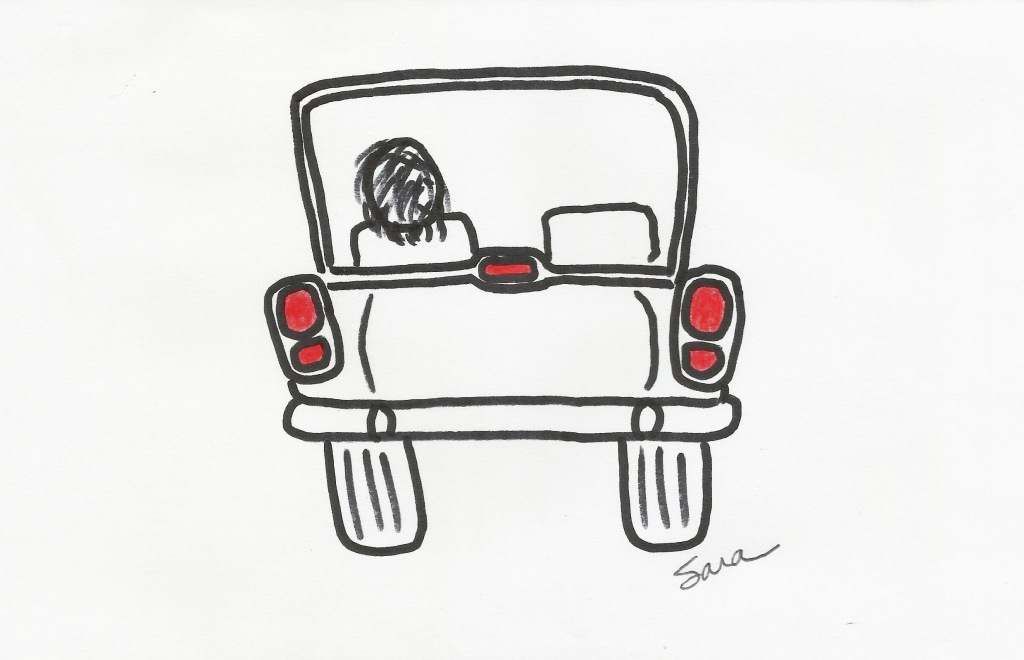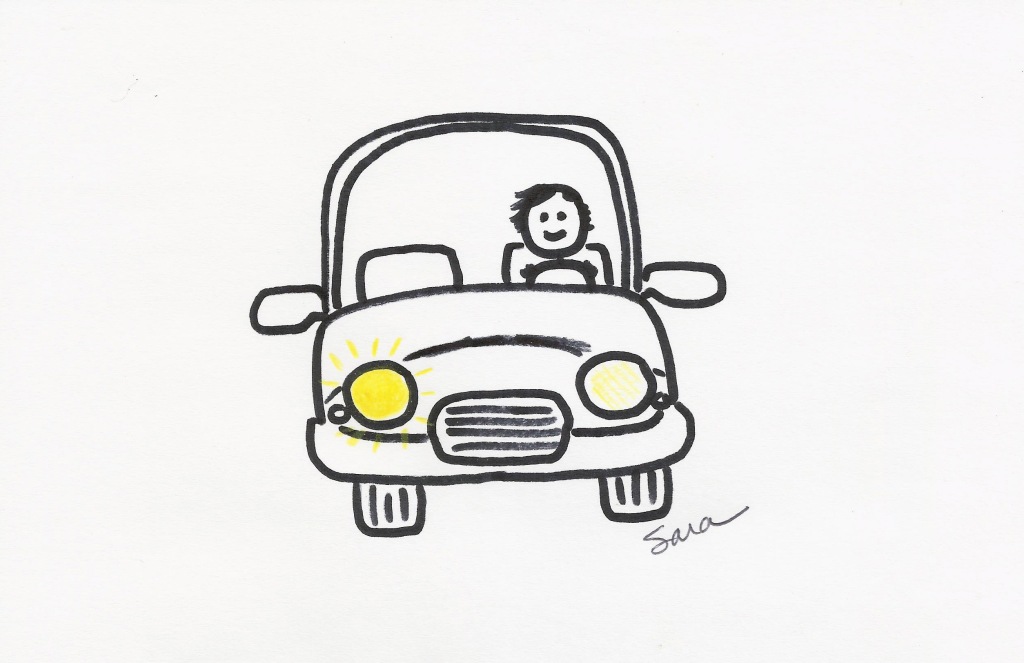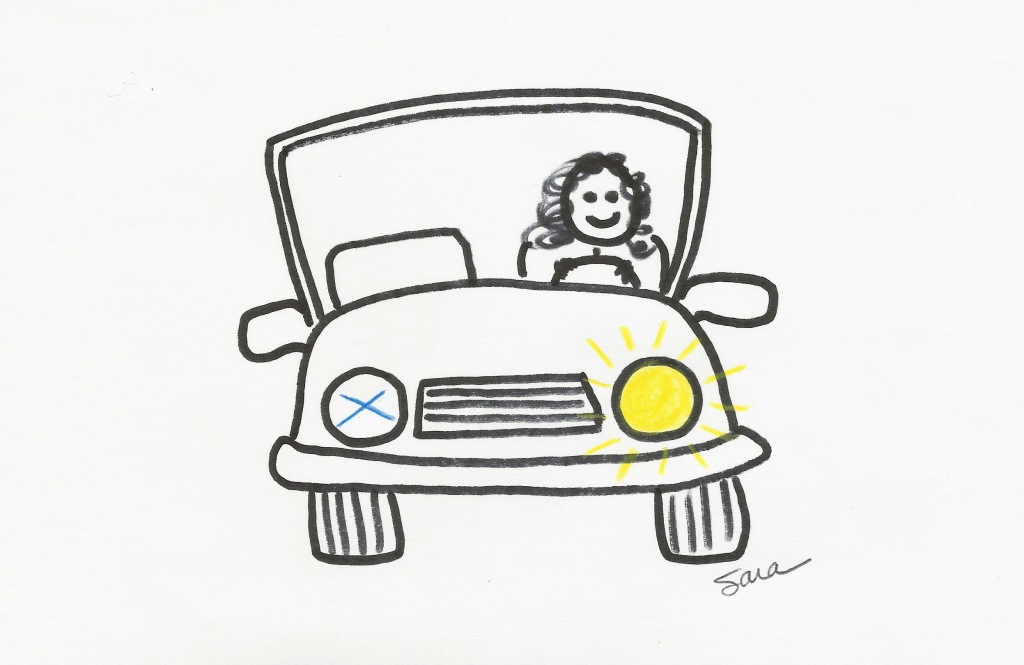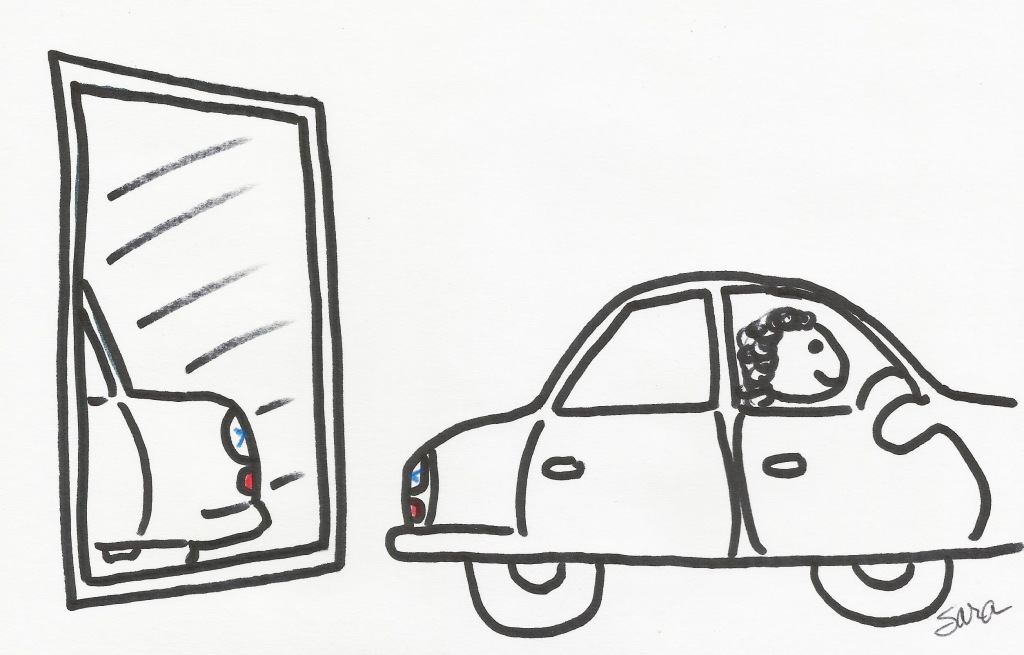And other questions pertaining to the Christian life
Nothing is more commanding than brake lights on the vehicle in front of you. The traffic light may be green, but if the car in front of you has stepped on the brakes and you see red brake lights, you will stop too (unless you are looking at your cell phone and don’t notice).
Once I drove a vehicle that had a cracked windshield, an unreliable starter, a horn that didn’t work and an assortment of other issues that we ignored, but when one of my brake light bulbs burnt out, my husband purchased a bulb immediately. I hadn’t even noticed it wasn’t working.
I watched my husband contort himself into impossible positions in the trunk of this car to change the brake light bulb — in the Walmart parking lot.
“Why?” I had said, knowing I had two other working lights to indicate when I am braking. Our home was just 15 minutes away.
“It’s the law,” he replied. “If you’re in an accident and a light is out, you’ll be held liable.”
(It’s true. While some state laws merely indicate that you must have two working brake lights that are visible even in daylight from 300 feet away, U.S. federal law declares you must have a functioning third “stop lamp” in car models 1986 and older, in truck models 1994 and older.)

“I like to be noticed.”
(Illustration by Sara Dagen)
It makes sense that if you have a third braking light that people would expect it to light when you are stopping. If it doesn’t work, they may not realize you are stopping. That could be a problem.
How bright is your light?
I notice more than brake lights. I have a fascination with all car lights. I blame my husband, who has made me overly aware of vehicle lights by his obsessive care of our own. Car lights matter. Our lights matter too.
Headlights shine to light our path, but car lights — all of them — make us both visible plus signal our actions to vehicles and pedestrians alike. What car lights are to traffic, our light as people of faith is to those around us.
Jesus not only claimed to be “the light of the world,” but He told his disciples they were, too. That includes us. Darkness only accentuates their brightness. Christians, it is now your time to shine. How bright is your light?
Each morning, as I’m driving in the darkness, I notice headlights, taillights, and brake lights. (I seem to have plenty of time to contemplate the flaws of other vehicles on the road as I commute.) Like most other details in my life, I “edit” — or note the mistakes — in what I see.
It’s surprising how many cars on the road have one headlamp unlit or a brake light (or two!) not functioning or lights mismatched or misaligned. I’ll notice if the lights seem dim or too bright.

Once when I was driving home from work at dusk, a woman in the turn lane beside me rolled down her window to verbally ask if I’d let her into my lane. I said I would — IF she turned on her car lights. (They were off.)
One predawn morning, a car with faulty brake lights I’d been following turned into the health club parking lot. When I realized she had parked near me, I wanted to tell her that her brake lights were reversed (brighter when she traveled than when she applied the brakes).
Why do I feel this need?
Because if people aren’t aware that their lights aren’t shining, they won’t know to fix them.
Unfortunately, headlamp and brake light bulbs don’t last forever, and sometimes we’re the last to know.

In contrast, if your turn signal bulb needs to be replaced, your car communicates that to you by accelerating the sound of the turn signal. Click. Click. Click. becomes ClickClickClickClickClickClick… (If you have your turn signal on but fail to turn the steering wheel sharp enough to turn it off, your car actually chimes to alert you to that.) Or at least that’s how my cars have behaved.
Silent but potentially deadly
Turn signals will annoy you into changing bad bulbs. Headlights, running lights, taillights, and brake lights aren’t as communicative. They don’t make a sound. Ever.
To see if our headlights are working, we might park in front of a wall and note if we see equal light coming from each. Or if we’re driving on a dark road we might notice that the puddle of light in front of us is unequal.
But how do you note when a taillight or brake light isn’t working without the help of someone else?
Even after my husband changes a brake light bulb, he’ll have me turn on my car and step on the brake while he stands behind the vehicle to make sure it now lights. A car light that isn’t working correctly could cause an accident, a potentially deadly or damaging one.
Because I’m me and tend to find spiritual lessons in ordinary occurrences, I find the light scenarios parallel the Christian life. (You didn’t think I was fascinated by car lights that I’d write and illustrate a post just about that, did you?)
Jesus told His disciples that they were the light of the world and just by shining they brought glory to God.
14 “You are the light of the world. A town built on a hill cannot be hidden.
Matthew 5:14-16 (NIV)
15 Neither do people light a lamp and put it under a bowl. Instead they put it on its stand, and it gives light to everyone in the house.
16 In the same way, let your light shine before others, that they may see your good deeds and glorify your Father in heaven.
Just like our vehicle lights, our light as Christ followers is meant to be seen and to signal what we do. (The only reason we are a light of the world is because Jesus died on the cross to pay the penalty for our sins, and by His grace we have decided to follow Him. Let’s give credit where credit is due: Jesus.)
Our lights are for others
As followers of Christ, we read the Word of God, which is “a lamp to my feet and a light to my path” (Psalm 119:105 ESV). As our headlights do for our cars, God’s Word does for us.
But much of the benefit of car lights is for the other vehicles on the road. In driver’s ed back in high school, I learned this saying, “If we need windshield wipers to see, we need lights so others will see us.” Back then, we had to manually turn on the headlights in our vehicle, and it wasn’t an automatic reflex to turn on my car lights during an afternoon rainstorm.
“… we need lights so others will see us” reminded me then, and now, that my lights aren’t all about me. They are for others. Our light as a Christian is for others also.
What if we aren’t shining brightly and don’t know?

“Well, they certainly draw more attention to it.”
A mirror is a possible solution, yes? (Illustration by Sara Dagen)
Have you ever held a flashlight for someone when they were working in the dark interior of a car engine? Despite trying to be helpful, sometimes I position the light incorrectly, and my husband can’t see what he needs to see.
Though I don’t want to hear his exasperated wordage, his (frustrated) feedback helps me adjust the light to better highlight what he needs to see.
How to better align or adjust your light
We can’t always tell when our light misses the mark or isn’t shining brightly. God’s Word can serve as a mirror, showing us where we need to adjust, and if we act on it, we can be blessed and bless others, as it says in the book of James.
23 For if anyone is a hearer of the word and not a doer, he is like a man who looks intently at his natural face in a mirror.
James 1:23-25
24 For he looks at himself and goes away and at once forgets what he was like.
25 But the one who looks into the perfect law, the law of liberty, and perseveres, being no hearer who forgets but a doer who acts, he will be blessed in his doing.
You may have difficulty finding a mirror large enough to view your car’s headlights or rear lights. It’s much easier to have someone else stand behind or before the car to critique your lights for you. Likewise, we benefit from fellow believers who can encourage us to live brightly.
As a writer, I long for an editor to refine or redirect my work or offer me applause when I’ve done well. Feedback sometimes hurts but ultimately helps.
As a Christian, I want people in my life who can hold up the mirror of God’s Word to reflect my flaws that I might better shine for God’s glory. I want them to speak into my life, view my light critically (but in love!) so I might make the appropriate adjustments.
While my headlights help light the way in front of me, my taillights can help guide someone behind me. Brake lights alert those following me that I’m stopping and they might be wise to do so, too.
Spiritually, I may slam the brakes on bad behaviors (as God convicts) or simply stop to be still before God or to help someone I might not have noticed when going full speed ahead.
Are my brake lights a big deal? What I stop doing or stop to do differently may be just as significant as what I’ve been doing all along. So, yes, these brake lights do make my rear end look bigger and more significant to those who follow me (in case you wanted to know the answer to my title question). 😉
While I appreciate car lights — headlights, taillights, turn signals, brake lights — on any drive, I need them much more when it’s dark. These times seem very dark, my friends, and the world needs light more than ever.
Now is your time to shine!
Originally published April 25, 2020, on Koinonia, a Medium.com publication.


Sara , a great message, Sermon ☺! A Bible lesson! I smiled at your illustration. Glad to know you are OK. I sent an email a couple days ago! Please read & advise! Aunt Claire
LikeLiked by 1 person
Thanks, Aunt Claire. I replied to your email this morning. Thanks for checking on me! Love you! ❤
LikeLike